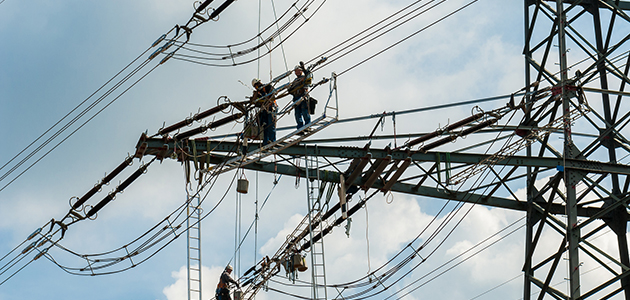Appreciating Line Workers: Keeping A Complex Machine Running
Back to Top
In April 2013, the U.S. Congress agreed unanimously on Resolution 95, recognizing the efforts of line workers in keeping the electrical power on and protecting public safety. In considering what line professionals do, consider their everyday work world: the grid.
The electric grid is a modern engineering marvel and is said to be the largest “machine” in existence. It is also centuries old, made up of multiple devices of various brands and wildly variable dates of birth. The grid is expansive, spanning thousands of miles of environmentally exposed line that make it naturally susceptible to fault problems from contact or breaks that require someone to troubleshoot and fix.
Many parts of our grid are 25-30 years old, with operating rules that coincide with the date of design, not the date of manufacture. For example, a hydraulic recloser built today is installed and must be maintained the same way it was done in the 1940s when it was designed.
My appreciation for line workers grew immensely because of their work with this “machine.” They rarely, if ever, are called when the grid works as it’s supposed to and when (given all the variation in parts) things “coordinate.” When things don’t coordinate and line crews respond:
- 80% of the time it’s because temporary or non-persistent problems tripped a device needlessly and crews find … well … nothing.
- They find equipment failure caused the outages, usually because a device didn’t operate properly.
- Sometimes system problems grow. For example, after 3-4 attempts using full system energy to test overhead systems, small problems can become larger. In some cases, problems progress to other parts of the system that were not originally involved.
Limiting or eliminating needless line worker call-outs means we need to eliminate the less-complex causes of the grid to operating improperly. The means limiting outages from temporary faults, eliminating maintenance-prone technologies, and using better technologies to improve the fault-hunting practices. These things improve reliability for customers, but they also benefit line workers by freeing them up to tackle their proactive duties.
We appreciate line workers for what they do for us. But now, more than ever, I have a new respect for what they work on: A complex modern marvel that is aging and needs to be updated to remove the causes of needless failure.
I’d be interesting in learning your thoughts in the Comments section below on the important role line workers play.